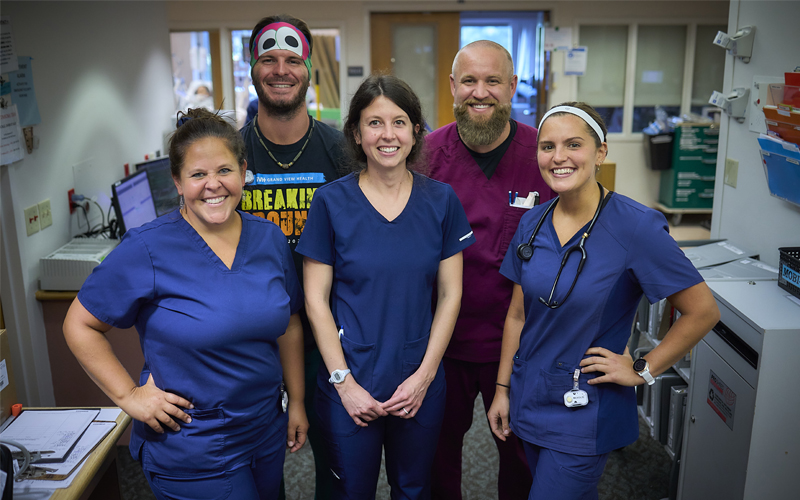
Patients receiving care in an Intensive Care Unit (ICU) often deal with multiple medical conditions, one of which may be acute kidney injury (AKI). Yet treatments designed to improve kidney function, such as traditional dialysis, can place extra strain on a patient’s organs and hinder their ability to recover.
To help patients with AKI and other conditions heal safely and improve their chances of survival, the Grand View Health ICU now offers continuous renal replacement surgery (CRRT). It’s a gentler form of dialysis proven to help people with AKI recover from serious injuries.
What is CRRT?
CRRT differs from traditional dialysis in several ways. Standard dialysis takes place on an outpatient basis. It’s typically performed three times a week for two-to-four hours at a time. Because standard dialysis moves quickly, it can raise a person’s blood pressure and put extra strain on the heart.
“CRRT is much gentler,” says Crystal Grone, MSN, RN, the Director of ICU, Vascular and Respiratory Therapy at Grand View Health. “It’s done 24 hours a day to slowly clear waste, toxins and excess fluid from the body. This helps heal the kidneys and lets doctors and nurses give patients the nutrition and medication they need to support their recovery.”
How does CRRT work?
People who need CRRT will receive it through a catheter placed in the neck or groin. The catheter is connected to a CRRT machine called a dialyzer. During the therapy, the machine will slowly pump blood and other fluids from the body into the dialyzer, filter them, and pump purified fluids back into the body.
“The CRRT machine essentially does the same work as healthy kidneys,” Grone says.
CRRT is used most often for patients who suffer AKI from an injury, illness, or medication reaction. It’s also for patients who have suffered liver and heart damage that restrict their ability to receive traditional dialysis. Caregivers in the ICU will continue CRRT until a patient’s kidneys show signs of recovery.
The expert team of ICU nurses at Grand View Health works with physicians, patients and family members to ensure the safest CRRT treatments possible.
“Our nursing team has completed extensive training in CRRT, and we’re excited to offer this as a new and potentially lifesaving option for our patients,” Grone says.
Learn more about critical care medicine at Grand View Health.
